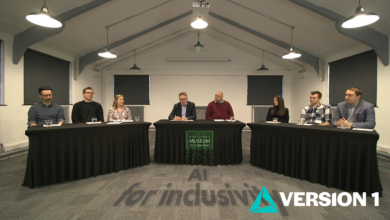
The effective management of vast information is essential to every organization. Luckily, Artificial Intelligence (AI) technology presents innovative ways to manage knowledge more proficiently. In this article, we delve into how AI is revolutionizing knowledge management, enhancing productivity, and revolutionizing information-centric tasks.
Understanding the Real Power of AI in Knowledge Management
AI in knowledge management leverages machine learning and natural language processing capabilities to streamline knowledge sharing and organization. These AI features automatically sift through data, identify critical information, and present it in an easily accessible format.
Moreover, AI can predict future knowledge requirements, hence providing information even before it’s needed. It is a proactive approach that enhances decision-making processes and troubleshooting efforts.
Furthermore, intelligent bots can automate repetitive tasks, hence giving team members more time to focus on essential duties.
Your business can harness these benefits by using the right AI knowledge management tools.
Why Businesses Need To Utilize AI for Effective Knowledge Management
With accelerating digital transformation, the rate of information generation is rapid. Manually managing such a vast volume of data may be impractical.
AI-powered knowledge management systems offer automated real-time updates. They continuously add new findings, update existing data, and remove redundant information.
They also allow businesses to unlock the insights hidden in unstructured data which traditional solutions often overlook. Such systems can analyze text, imagery, video, and even audio data.
Furthermore, these tools offer personalized user experiences. They are capable of learning users’ behavior and delivering information tailored to individual needs.
Core Processes of AI Knowledge Management
The core processes of AI in knowledge management include knowledge creation, retention, transfer, and utilization. These are the life-cycle steps that knowledge goes through within an organization.
During knowledge creation, AI tools help convert raw data into understandable and useful knowledge. This is often achieved through data mining and machine learning techniques.
Knowledge retention involves storing the created knowledge. AI assists by classifying and organizing information in a logical and user-friendly manner.
Knowledge transfer and utilization involve the distribution and application of knowledge throughout the organization. AI automates these processes, ensuring that the right information is accessible to the right people at the right time.
Revolutionizing Efficiency With AI in Knowledge Management
AI is driving efficiency in knowledge management by automating mundane tasks. With machine learning algorithms, AI can manage big data processing, and interpretation and deliver insightful conclusions.
Through predictive analytics, AI tools can forecast future trends and help the business make data-backed decisions in real time.
Moreover, AI can bridge knowledge gaps, enhancing communication and collaboration among employees. It ensures that every team member has access to the data they need when they need it.
Importantly, AI also cuts down on the cost of training and reduces human error — resulting in more reliable data management procedures.
Overcoming Challenges in Implementing AI for Knowledge Management

Despite the benefits, adopting AI in knowledge management still presents challenges, with data privacy and security topping the list. Organizations must enforce tight controls to protect sensitive data from external threats.
Moreover, investing in AI knowledge management tools can be expensive. Businesses must evaluate the cost and anticipated benefits before investing in AI software.
Integration challenges also exist. It can be difficult to get new AI systems to communicate with existing platforms and databases effectively.
However, with careful planning, these challenges can be overcome, and businesses can reap the numerous benefits offered by AI in knowledge management.
Altogether, AI is not just a trend in knowledge management. It is a game-changer, providing proactive, personalized, and efficient solutions to manage vast information. Businesses that leverage this technology will enjoy enhanced decision-making capabilities, increased efficiency, and a competitive edge in their respective markets.



